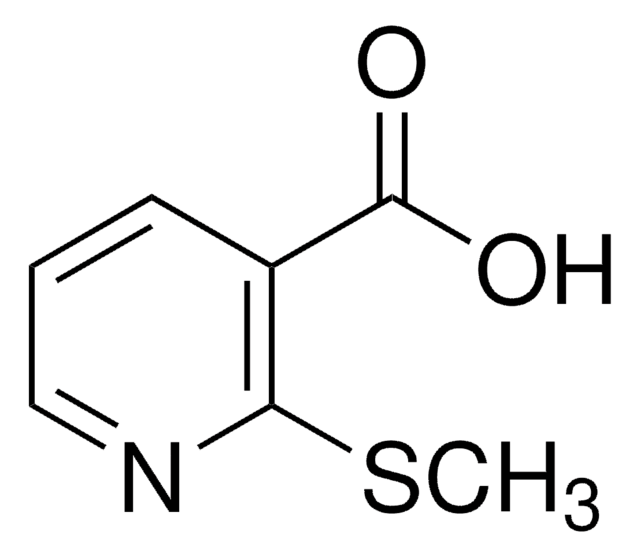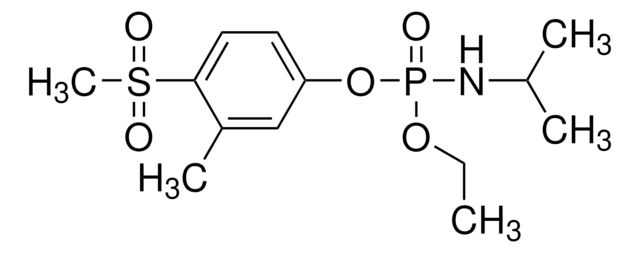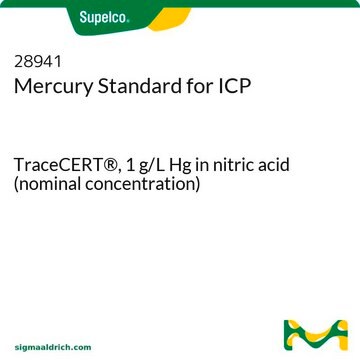CRM05207
Disulfoton-sulfoxide
certified reference material, TraceCERT®, Manufactured by: Sigma-Aldrich Production GmbH, Switzerland
About This Item
Recommended Products
grade
certified reference material
TraceCERT®
Quality Level
product line
TraceCERT®
form
liquid
shelf life
limited shelf life, expiry date on the label
manufacturer/tradename
Manufactured by: Sigma-Aldrich Production GmbH, Switzerland
storage temp.
−20°C
SMILES string
CCOP(=S)(OCC)SCCS(=O)CC
InChI
1S/C8H19O3PS3/c1-4-10-12(13,11-5-2)14-7-8-15(9)6-3/h4-8H2,1-3H3
InChI key
UPUGLJYNCXXUQV-UHFFFAOYSA-N
Looking for similar products? Visit Product Comparison Guide
Related Categories
General description
Certified content by quantitative NMR incl. uncertainty and expiry date are given on the certificate.
Download your certificate at: http://www.sigma-aldrich.com
Disulfoton-sulfoxide is an oxidative metabolite of the organophosphorus insecticide disulfoton.
The European Union regulations define a maximum residue limit (MRL) of 0.01 mg/kg for disulfoton, taken as a sum of disulfoton, disulfoton sulfoxide, and disulfoton sulfone, in foods of plant origin. Currently, disulfoton is not allowed for use in the European Union and also has restrictions put over its use in the USA by American Environmental Protection Agency (EPA).
Application
It may also find its use in the following:
- Determination of disulfoton and its five metabolites in human blood and urine samples by QuEChERS extraction followed by liquid chromatography-tandem mass spectrometric analysis
- Method development for the analysis of 15 organophosphorus pesticides and their metabolites in water samples using multiwalled carbon nanotubes based dispersive solid phase extraction and gas chromatography-nitrogen phosphorus detector (GC-NPD)
- Simultaneous determination of 15 organophosphorus pesticides and their metabolites in cereal-based baby food samples using multi-walled carbon nanotubes based dispersive solid phase extraction and gas chromatography-nitrogen phosphorus detector (GC-NPD)
- Analysis of 11 pesticides and four of their metabolites in chickpeas and barley flours using a modified QuEChERS extraction and GC-NPD determination
- Development of an HPLC method for the simultaneous analysis of nine organophosphorus pesticides in water and post-column chemiluminescence detection with cerium(IV)
- Method development to quantify 49 organophosphorus pesticide residues and 10 of their metabolites in fish, egg, and milk samples by means of dual gas chromatography-dual pulse flame photometric detection
Legal Information
Signal Word
Danger
Hazard Statements
Precautionary Statements
Hazard Classifications
Acute Tox. 1 Oral - Acute Tox. 3 Dermal - Aquatic Acute 1 - Aquatic Chronic 1
Storage Class Code
6.1A - Combustible acute toxic Cat. 1 and 2 / very toxic hazardous materials
WGK
WGK 3
Flash Point(F)
Not applicable
Flash Point(C)
Not applicable
Choose from one of the most recent versions:
Certificates of Analysis (COA)
Don't see the Right Version?
If you require a particular version, you can look up a specific certificate by the Lot or Batch number.
Already Own This Product?
Find documentation for the products that you have recently purchased in the Document Library.
Our team of scientists has experience in all areas of research including Life Science, Material Science, Chemical Synthesis, Chromatography, Analytical and many others.
Contact Technical Service










